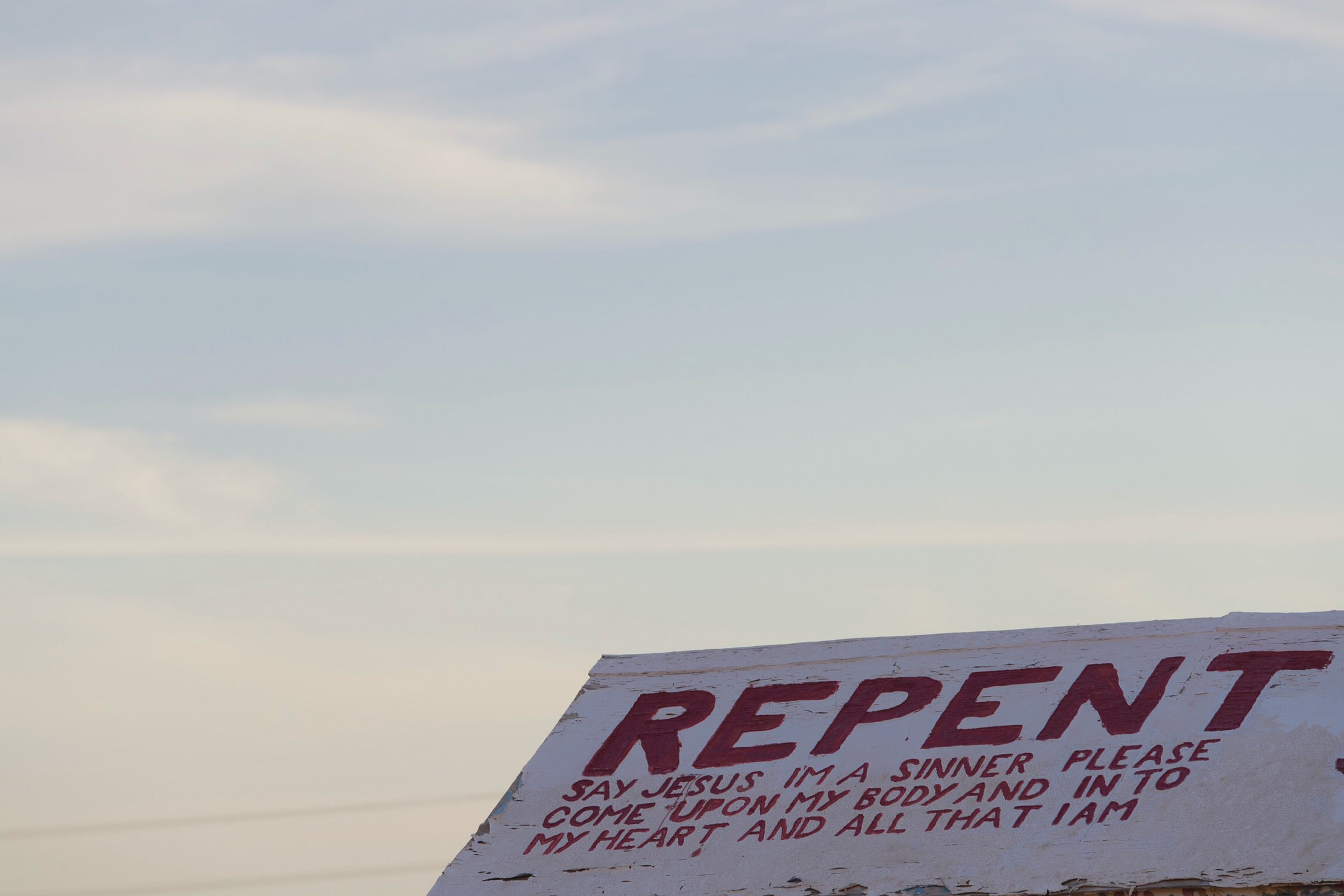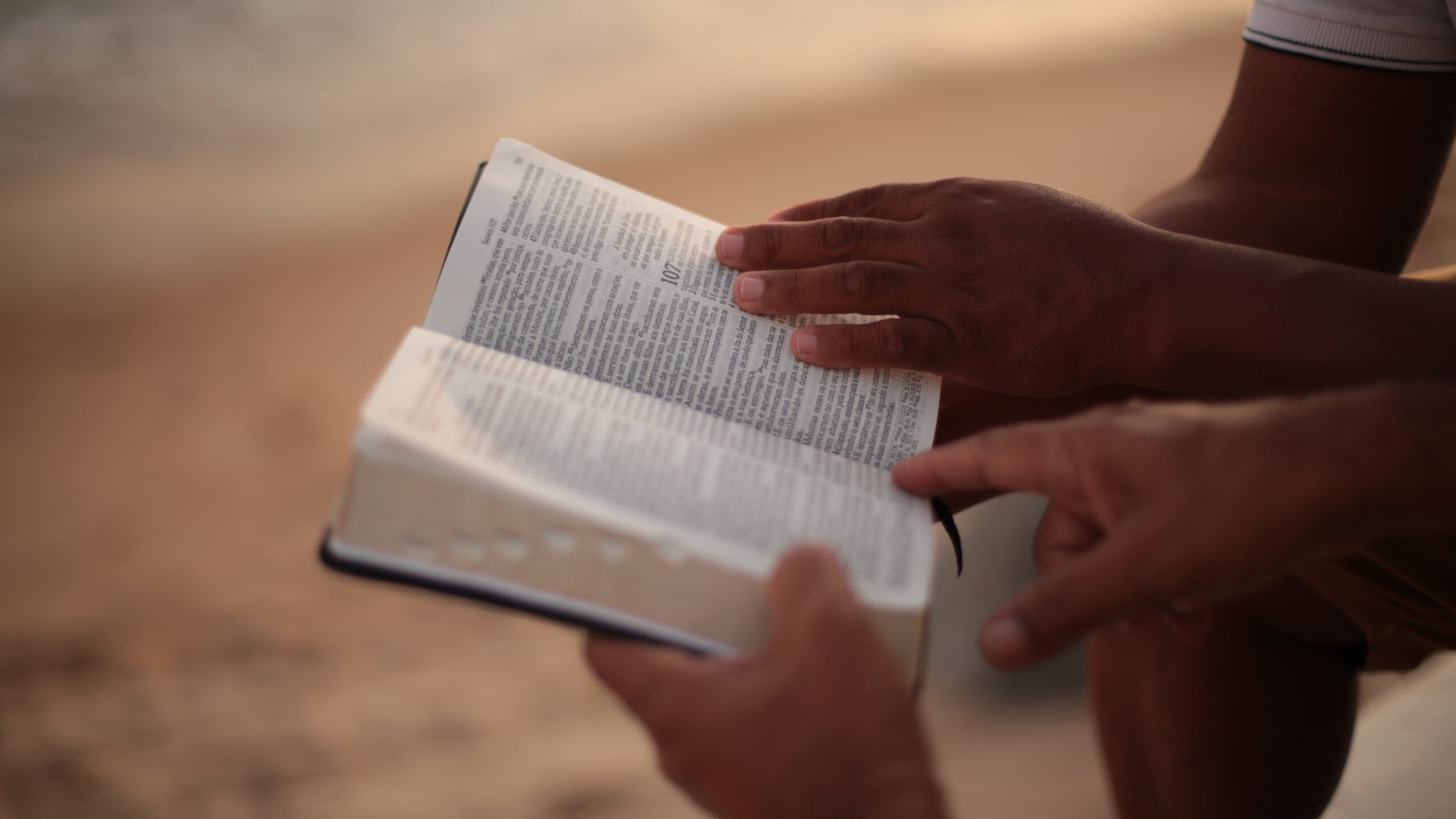(1) Now there were some present at that time who told Jesus about the Galileans whose blood Pilate had mixed with their sacrifices. (2) Jesus answered, “Do you think that these Galileans were worse sinners than all the other Galileans because they suffered this way? (3) I tell you, no! But unless you repent, you too will all perish. (4) Or those eighteen who died when the tower in Siloam fell on them—do you think they were more guilty than all the others living in Jerusalem? (5) I tell you, no! But unless you repent, you too will all perish. (6) Then he told this parable: “A man had a fig tree, planted in his vineyard, and he went to look for fruit on it, but did not find any. (7) So he said to the man who took care of the vineyard, ‘For three years now I’ve been coming to look for fruit on this fig tree and haven’t found any. Cut it down! Why should it use up the soil?’” (8) “Sir,” the man replied, “Leave it alone for one more year, and I’ll dig around it and fertilize it. (9) If it bears fruit next year, fine! If not, then cut it down.” Luke 13:1-9
This devotional series examines the beginning of Luke 13 to learn what Jesus taught about the tragedies of life. In this passage, Jesus shares four important truths. The first three truths are:
1. Tragedies are a part of life because we live in a fallen world.
2. Tragedies reveal to us that life is fragile and fleeting.
3. Tragedies should move us toward repentance!
The men who reported this tragedy to Jesus wanted to know whether or not the Galileans were worse than other sinners. Look again at Jesus’ response in verse 3: “I tell you, no! But unless you repent, you too will all perish.” Again, in verse 5, Jesus declares, “I tell you, no! But unless you repent, you too will all perish.” Notice that Jesus repeats Himself. He restates the phrase because it conveys an eternally significant truth that warrants close attention. Jesus uses two key words—the first is repent, and the second is perish.
The word “repentance” comes from the Greek word metanoia. Metanoia is composed of two words: 1) meta, which means “change,” and 2) noia, which is another word for “mind.” The word “repent” simply means to feel such regret over an action that you agree with God that it is sin. This change of mind involves both a turning from sin and a turning to God. Repentance and faith go hand in hand; they are two sides of the same coin.
“Repent or perish” is not a popular message. When was the last time you heard a message on repentance? One author observes:
Noah’s message from the steps up to the Ark was not, “Something good is going to happen to you this very day!” Amos was not confronted by the high priest of Israel for proclaiming, “This can be your best life now.” Jeremiah was not put into the pit for preaching, “I’m okay, you’re okay!” Daniel was not put into the lion’s den for telling people, “Every day is a Friday!” John the Baptist was not forced to preach in the wilderness and eventually beheaded because he preached, “Smile, God loves you!” The two prophets of the tribulation will not be killed for preaching, “God is in heaven and all is right with the world.” Instead, what was the message of all these men of God? It was simple, one word: “Repent!” (1500 Illustrations for Biblical Preaching, Michael P. Green, 1989)
At some point, each of us must come to the place where we see ourselves for who we really are without Christ. Jeremiah 17:9 gives a clear illustration of our heart condition: “The heart is deceitful above all things and beyond cure. Who can understand it?” Have you ever considered why Peter, Paul and Jesus traveled about preaching a message of repentance? It is because they understood the destiny of every person who is not IN Christ.
What does Jesus mean by the word “perish?” This word comes from the Greek word apollumi, which means “to destroy…to put out of the way entirely…to give over to eternal misery in hell” and “to be lost and ruined.” Essentially, “perish” points to one thing—the second death. Are you familiar with the term “second death?”
Here is my warning: If you are not IN Christ, then you are headed for the Great White Throne Judgment. Listen to the way in which the apostle John describes it:
“Then I saw a great white throne and him who was seated on it. Earth and sky fled from his presence, and there was no place for them. And I saw the dead, great and small, standing before the throne, and books were opened. Another book was opened, which is the book of life. The dead were judged according to what they had done as recorded in the books. The sea gave up the dead that were in it, and death and Hades gave up the dead that were in them, and each person was judged according to what he had done. Then death and Hades were thrown into the lake of fire. The lake of fire is the second death. If anyone’s name was not found written in the book of life, he was thrown into the lake of fire.” (Revelation 20:11-15)
Clearly, the “lake of fire” is the second death. When Jesus says, “Repent or perish!” He has the Great White Throne Judgment and the second death in mind. It is imperative that you understand Jesus does not want anyone to end up in the lake of fire. 2 Peter 3:9 states, “He is patient with you, not wanting anyone to perish, but everyone to come to repentance.”
So how can you ensure you are spared from this judgment? Repent and turn to Jesus by faith. Here is the Good News: There will not be a single believer standing before this Throne of Judgment. Why? Because a believer’s sins have already been judged at the cross. There are two places where your sins may be judged: 1) at the Cross in this life or 2) at the Great White Throne in the life to come—the choice is yours. For those of you who know that you are in Christ, Paul gives this word of encouragement: “Therefore, there is now no condemnation for those who are in Christ Jesus” (Romans 8:1). You who are in Christ Jesus have no need to fear the coming judgment because your sins have already been judged.
Please understand it is not my intention to be a fear monger. Rather, I want you to see the stakes are extremely high, though many people remain clueless. It is worth the risk of anger and resentment directed towards me in order that some might hear the truth, repent, and be saved. Next week, we will consider the final lesson Jesus wants us to learn from tragedies. Stay tuned.



